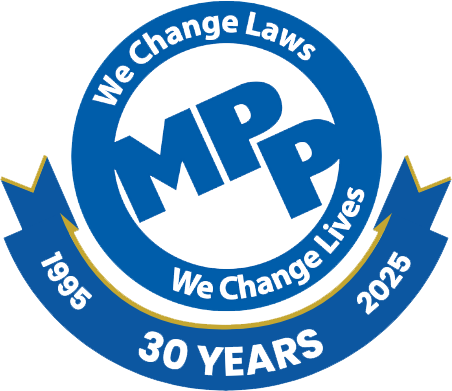- Take Action: Urge your state legislators to support a compassionate medical cannabis program!
Press Release
Marijuana Policy Project Statement on Amazon’s Decision to Remove Cannabis From Employee Drug Testing and to Endorse the MORE Act

FOR IMMEDIATE RELEASE
Wednesday, June 2, 2021
Contact: Violet Cavendish
vcavendish@mpp.org
On Tuesday evening, Amazon announced that it “will no longer include marijuana in its comprehensive drug screening program for any positions not regulated by the Department of Transportation, and will instead treat it the same as alcohol use.” Additionally, the company announced its public support for equity-centered federal marijuana legalization.
In response to this news, Matthew Schweich, deputy director at the Marijuana Policy Project, the nation’s leading cannabis policy reform organization, released the following statement:
“As one of the nation’s largest employers, the decision by Amazon to update their drug testing policy to omit marijuana will have a huge impact. Disqualifying potential employees for cannabis use is both outdated and bad for business. Adults should not be punished for responsibly using cannabis outside of the workplace. It simply does not make sense for law-abiding citizens to be denied employment or risk losing their jobs over a substance that is safer than alcohol.
“Employers who continue to test for marijuana will lose out on capable and hard-working employees. We encourage other businesses to follow Amazon’s example and take measures to update their drug policies and end marijuana testing as a condition for employment.
“Amazon’s support for the MORE Act is yet another sign that the American people — and the American business community — back federal cannabis reform that begins to rectify the harms of cannabis prohibition by prioritizing social justice and social equity. The private sector has embraced legalization, and we hope that 1600 Pennsylvania Avenue will align itself with other employers and march in-step with the majority of Americans who support full legalization. The Biden administration and Congressional leaders must take action this year.”
###
Founded in 1995, the Marijuana Policy Project (MPP) is the nation’s leading cannabis policy reform organization. MPP has played a central role in passing dozens of cannabis policy reforms in states across the country, including 14 successful cannabis legalization campaigns, and also works to advance federal reforms.
